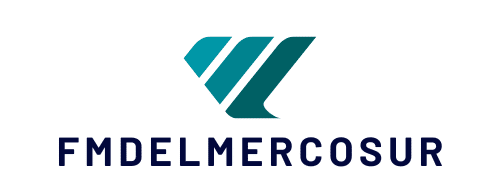The future of autonomous driving in the UK is looking bright, and one of the key factors driving this change is the rise of quantum sensors. These high-tech devices have the potential to revolutionize the way autonomous vehicles navigate, offering increased accuracy, reliability and efficiency. In this article, we’ll explore how quantum technology can improve navigation systems in autonomous vehicles.
Quantum Sensors: The Future of High-Tech Navigation
Quantum technology is an emerging field that utilizes the principles of quantum physics to develop new technological solutions. In the context of autonomous vehicles, quantum sensors have the potential to significantly improve navigation and sensing systems.
Lire également : How Are UK’s Smart Cities Tackling Wastewater Management?
Quantum sensors can measure physical quantities, such as magnetic fields or temperature, with extremely high precision. This precision comes from the quantum behavior of the particles used in the sensors, which allows for measurements that are much more accurate than those possible with traditional sensors. Quantum sensors can provide data that is precise to the level of individual quantum states, making them an invaluable tool for autonomous vehicle navigation.
Quantum sensors also have the potential to be more reliable than traditional sensors. They are less susceptible to interference from environmental factors, which can cause errors in traditional sensor measurements. This makes quantum sensors a more reliable option for autonomous vehicle navigation, as they can provide accurate data even in challenging conditions.
Lire également : Unlock true happiness: find your perfect dream box now
Driving Accuracy with Quantum Sensors
Quantum sensors can significantly improve the accuracy of autonomous vehicle navigation systems. They can measure a wide range of physical quantities with high precision, allowing for more accurate navigation.
For example, consider the role of quantum sensors in measuring magnetic fields. Autonomous vehicles often rely on magnetic field measurements for navigation. Traditional magnetic field sensors can be affected by interference from electrical equipment or other magnetic fields. Quantum sensors, on the other hand, can provide extremely accurate magnetic field measurements, even in the presence of such interference. This means that autonomous vehicles equipped with quantum sensors can navigate more accurately, even in complex environments.
Additionally, quantum sensors can provide a wealth of data that can be used to improve autonomous vehicle navigation. For instance, they can measure the gravitational field of the Earth, which can be used to determine the vehicle’s altitude with high precision. This data can be invaluable for autonomous vehicles, allowing them to navigate more accurately and safely.
Advancing Navigation Systems with Quantum Technologies
The use of quantum sensors in the UK’s autonomous vehicles is not just about improved accuracy and reliability. It’s also about advancing the technology that powers these vehicles. Quantum technologies can help drive the development of more advanced navigation systems, which can in turn improve the performance of autonomous vehicles.
For instance, quantum sensors could be used to develop new types of navigation systems based on quantum principles. These could include quantum compasses, which could provide highly accurate directional information, or quantum gyroscopes, which could measure the vehicle’s rotation with extreme precision. These new types of quantum-based navigation systems could offer significant advantages over traditional systems, such as increased accuracy and reliability.
Furthermore, the use of quantum sensors could also pave the way for the development of new types of vehicle-to-vehicle communication technologies. These could allow autonomous vehicles to share data and coordinate their movements more effectively, leading to improved safety and efficiency on the roads.
The Market Potential for Quantum Sensors in Autonomous Vehicles
The market for quantum sensors in the autonomous vehicles sector is poised for significant growth. The need for improved navigation and sensing systems in autonomous vehicles is clear, and quantum sensors have the potential to meet this need.
In the UK, the government has recognised the potential of quantum technologies and has invested heavily in research and development in this area. This investment is likely to drive the development and adoption of quantum sensors in autonomous vehicles. As more companies in the autonomous vehicle industry begin to recognise the potential benefits of quantum sensors, we can expect to see an increase in demand for these devices.
Overall, the adoption of quantum sensors in the autonomous vehicle sector represents a significant opportunity for growth. As quantum technologies continue to mature, the possibilities for their use in autonomous vehicle navigation systems are only set to increase.
The Bigger Picture: Quantum Sensors and the Autonomous Vehicle Industry
The adoption of quantum sensors in the UK’s autonomous vehicle industry is not just about improving navigation systems. It’s also about positioning the UK as a leader in the global autonomous vehicle market.
Incorporating quantum sensors into autonomous vehicles could give the UK a competitive edge in the global market. It could help UK-based companies to develop more advanced, reliable and efficient autonomous vehicles, which could in turn drive the growth of the UK’s autonomous vehicle industry.
Moreover, the use of quantum sensors in autonomous vehicles could also have broader implications for the UK’s technology sector. It could drive the development of new technologies and industries related to quantum sensors and autonomous vehicles, creating new jobs and economic opportunities.
So, while the adoption of quantum sensors in autonomous vehicles represents a significant technological advancement, it also represents an economic opportunity. By embracing quantum technologies, the UK could position itself as a leader in the global autonomous vehicle industry, driving economic growth and technological innovation.
The Integration of Quantum Sensors and Other Technologies
The integration of quantum sensors with other technologies such as sensor fusion and LiDAR sensors can further enhance the performance of autonomous vehicles. Sensor fusion is a process that combines data from multiple sensors to improve system performance, providing more accurate and reliable information. LiDAR sensors, on the other hand, use light in the form of a pulsed laser to measure distances and generate precise, three-dimensional information about the environment.
When combined with quantum sensors, these technologies can significantly improve the navigation and sensing capabilities of autonomous vehicles. Quantum sensors can provide highly accurate data on physical quantities like magnetic fields and temperature, while sensor fusion can integrate this data with information from other sensors to create a comprehensive picture of the vehicle’s environment. Meanwhile, LiDAR sensors can complement this data by providing detailed spatial information.
This combination of quantum sensors, sensor fusion and LiDAR sensors can provide autonomous vehicles with a much more robust and accurate navigation system. This can improve the vehicle’s ability to navigate complex environments, enhance its safety, and ultimately increase its performance and efficiency.
Furthermore, the integration of quantum sensors with these technologies also has the potential to support real-time decision making in autonomous vehicles. This can enhance the vehicle’s ability to react to changing conditions and obstacles on the road, further improving its safety and efficiency.
The Future of Autonomous Driving and Quantum Technologies
Looking ahead, the role of quantum sensors and quantum technologies in the UK’s autonomous vehicle industry is set to expand. As quantum technology advances, the potential applications for quantum sensors in autonomous vehicles will continue to grow.
This shift towards quantum sensing in autonomous driving could lead to a number of significant developments. For instance, quantum sensors could be used to develop next-generation navigation systems, such as quantum navigation systems that can provide highly accurate, interference-resistant measurements of magnetic fields. The integration of such systems could greatly enhance the performance of autonomous vehicles.
In the long term, quantum sensors and quantum technologies could even play a role in the development of quantum computing for autonomous vehicles. Quantum computers could potentially process the vast amounts of data generated by autonomous vehicles much more efficiently than traditional computers, leading to improved performance and efficiency.
Moreover, the rise of quantum sensors could also drive the growth of the sensors market. As the demand for these high-tech devices increases, new opportunities could emerge for businesses in the sensor manufacturing industry.
In conclusion, the future of autonomous driving in the UK looks set to be shaped by quantum sensors and quantum technologies. By harnessing the power of quantum physics, these technologies could revolutionize the way autonomous vehicles navigate, leading to improved performance, safety and efficiency. The UK, with its strong investment in quantum research and development, is well-positioned to lead the way in this exciting field. The potential benefits are clear: better autonomous vehicles, a stronger economy, and a leading role in the global autonomous vehicle industry.











